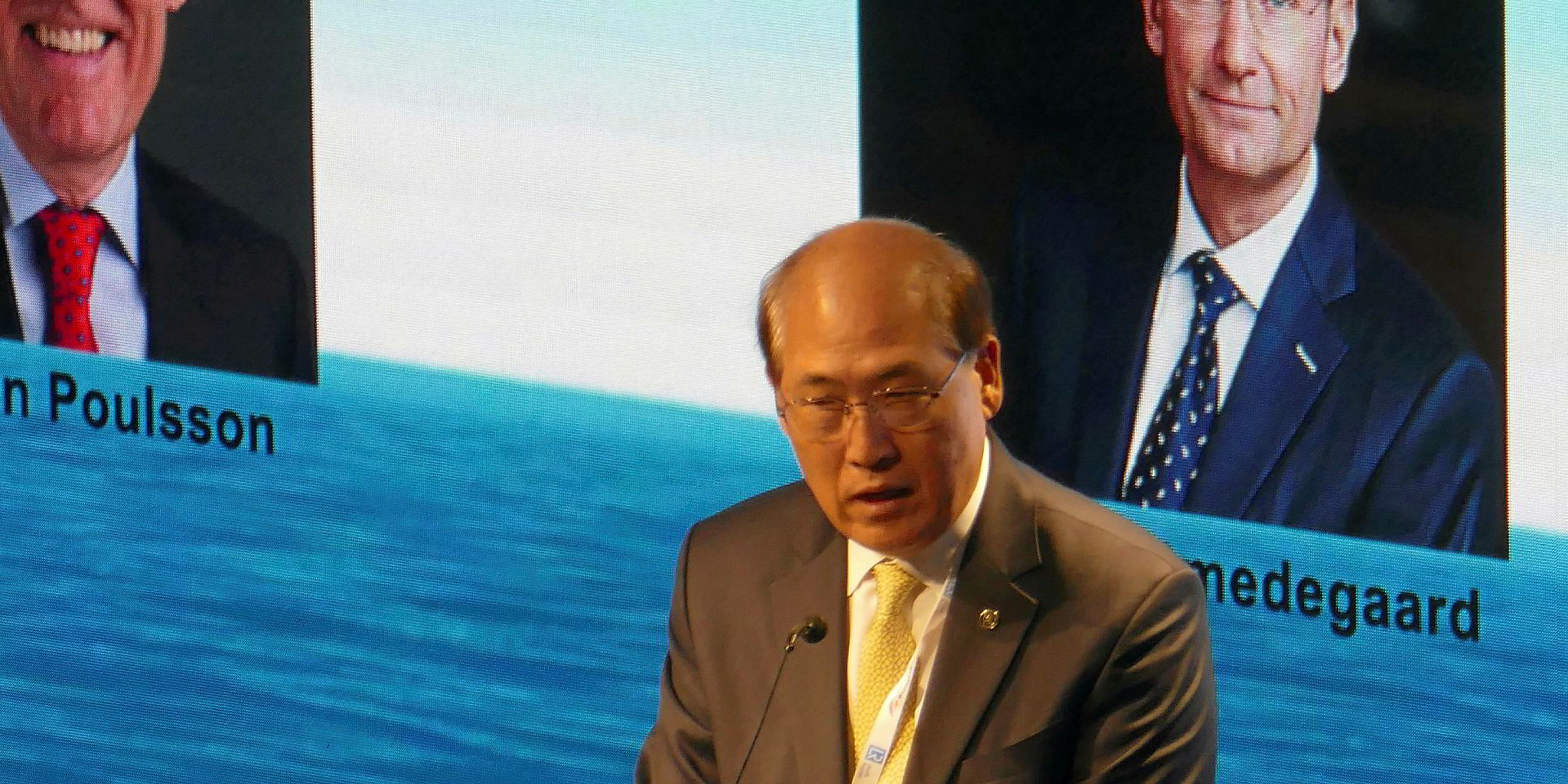Regulators have drawn up tentative targets for greenhouse gas reductions for shipping.
The draft goals come after a week of tough negotiations at the IMO's greenhouse gases working group, where delegates have been under pressure to draw up a long-term plan ahead of adoption next spring.
But sources close to the IMO working group say despite the apparent consensus, there are still differences of opinion between member states, and that the targets were only agreed on the condition that they were negotiable.
Opinion is broadly split between developed and emerging economies, such as Brazil and Saudi, Arabia, which are concerned about the impact of emissions targets on trade and economic development.
But one IMO delegate also describes the US as being "uncommitted" to adopting a progressive carbon emissions reduction programme.
The more progressive members include European countries, Japan and China, which are pushing for higher reduction targets.
“There are clearly still large differences to be overcome between developed and developing nations,” one source told TradeWinds. “It will be vital to address these issues if a meaningful strategy is to be adopted by the IMO in April 2018.”
According to a joint statement by industry associations, including Bimco and the International Chamber of Shipping, the IMO laid out three clear objectives in its draft emissions strategy.
The IMO aims to maintain international shipping's annual total CO2 emissions below 2008 levels.
It wants to reduce CO2 emissions per tonne-kilometre, as an average across international shipping, by at least 50% by 2050, compared with 2008.
And, it is seeking to reduce international shipping's total annual CO2 emissions by an agreed percentage by 2050, compared with 2008, as a point on a continuing trajectory of CO2 emissions reduction.
Under the proposals, short-term measures would be introduced between 2018 and 2023, mid-term measures between 2023 and 2030, and longer-term measures after 2030.
The industry associations group declares itself “broadly satisfied” with the IMO's progress to date.
“The industry associations remain confident that IMO member states will finalise a comprehensive CO2 reduction strategy for international shipping at the next meeting of the IMO Marine Environment Protection Committee in April 2018 that will fully match the ambition of the Paris Agreement on climate change,” they said in a joint statement.
IMO delegates say the draft targets give the regulator firm proposals to work with at the next meeting. While IMO secretary general Kitack Lim says the working group has made “considerable progress”.
Yet according to critics, there are still some big questions over what the targets amount to.
Some critics cite the lack of “clear numbers and dates”.
Others claim the strategy lacks concrete measures to reduce emissions. The Clean Shipping Coalition, for example, is calling on the IMO to introduce speed limits on ships to immediately reduce CO2 emissions.
But there are also doubts over whether the IMO will be able to enforce targets, or whether they will remain “aspirational objectives”, with which member states will not be legally required to comply.
Environmentalists and some of the more progressive member states are also disappointed that the decarbonisation target is not more radical.
At the outset of the IMO initiative on greenhouse gasses, there was talk of working towards zero carbon shipping after 2050.
The ambition to keep emissions below 2008 levels is fairly modest. Studies have shown that emissions since 2008 have largely remained below that level, through a combination of slower operational speeds and the impact of the shipping recession.
Environmentalists have also become frustrated over the European countries insistence that Monitoring Reporting Verification data on ship emissions and cargo carried must be considered before any firm decisions are made. Environmentalists claim this will add to delays over any future strategy.
Bill Hemmings, shipping director at environmental group Transport & Environment, said: “If, after 20 years of work, the IMO’s three-step approach to the climate crisis — report, analyse, decide — amounts to talk, talk, talk, then we should draw the obvious conclusion.”



